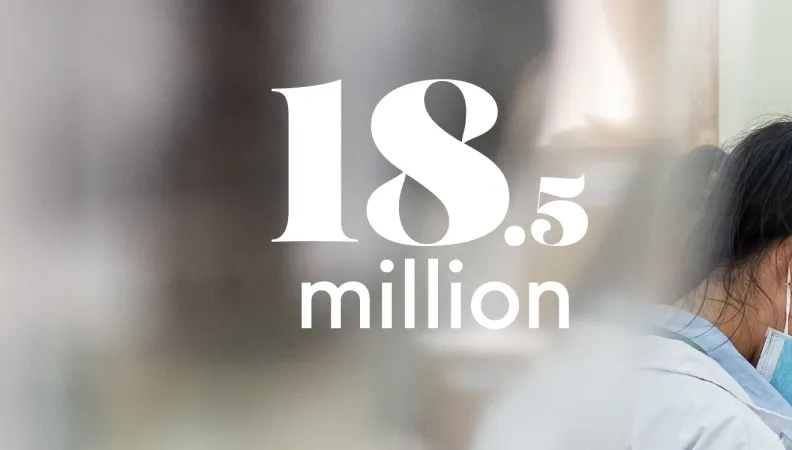Share the page
AFD: Working to provide 18 million people with better Healthcare
Published on

The numbers are in. For the year 2019, Agence Française de Développement committed €545 million to support health and social protection worldwide, with the aim of improving access to healthcare for 18.5 million people. With Coronavirus spreading by the day, the hope is that this funding will contribute to the support and healthcare equipment desperately needed across the developing world.
The Covid-19 pandemic has reminded the world just how precious quality healthcare can be. And it has shown – along with recent epidemics of Ebola, Dengue Fever and the Zika Virus – that health crises can travel across borders at lightning speed, with devastating consequences.
That’s why a global approach to strengthening healthcare and epidemiological surveillance systems is necessary, both to overcome current crises and to prevent future outbreaks.
To meet this increasingly urgent demand, AFD is acting on three strategic fronts, from healthcare systems and surveillance, to social protection and maternal and child primary healthcare and nutrition.
Bolstering Healthcare Systems and their Epidemiological Surveillance Networks
Strengthening healthcare systems is the key focus of our work. In our fight against inequalities in access to healthcare, we are adopting a multi-level approach to ensure access to quality care for all, particularly at primary level: functioning hospitals, competent staff, available drugs, affordable care and appropriate health policies.
Furthermore, at the regional level, epidemiological surveillance networks are on the front line in terms of monitoring and coordinating the response to epidemics. AFD supports four regional epidemiological surveillance networks, located in the Indian Ocean, the Caribbean, the Pacific, and Southeast Asia (Burma, Laos, Vietnam, Cambodia, and the Philippines).
In 2019, AFD committed €432 million to strengthening healthcare systems.
Developing Inclusive Social Protection Systems
AFD supports the implementation and expansion of social protection systems in developing countries, through loans, donations and technical support. The objective is to reduce poverty and inequality while supporting a just transition to low-carbon economies.
The programs launched in 2019 aim to improve social protection for 600,000 people – half of whom are women.
Continuing Progress in the Fields of Reproductive, Maternal, Neo-natal, Child Health and Nutrition
AFD has a long history in maternal and child health, and has gradually broadened its range of action to fight gender inequality.
AFD supports countries by financing projects focused on a multi-sectoral approach (including health, education and gender) with a view to empowering women. We also promote women's rights and sexual and reproductive health by improving the quality of these services and working to combat gender-based violence. Of the health projects financed by AFD in 2019, 81% aim to promote gender equality.
